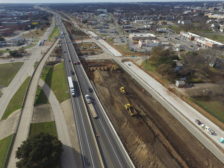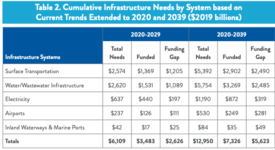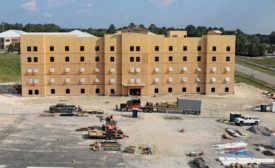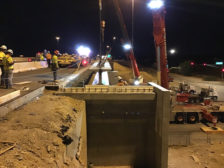Home » ASCE
Articles Tagged with ''ASCE''
Congressman: Biden Administration Can Use ASCE Report as Guidepost
Group Highlights $5.6-Trillion Gap in Infrastructure Spending
Read More
Infrastructure Needs
ASCE Highlights Construction-Ready Projects on New Map
Group Asks Congress To Pass COVID-19 Infrastructure Package
Read More
The latest news and information
#1 Source for Construction News, Data, Rankings, Analysis, and Commentary
JOIN ENR UNLIMITEDCopyright ©2024. All Rights Reserved BNP Media.
Design, CMS, Hosting & Web Development :: ePublishing













